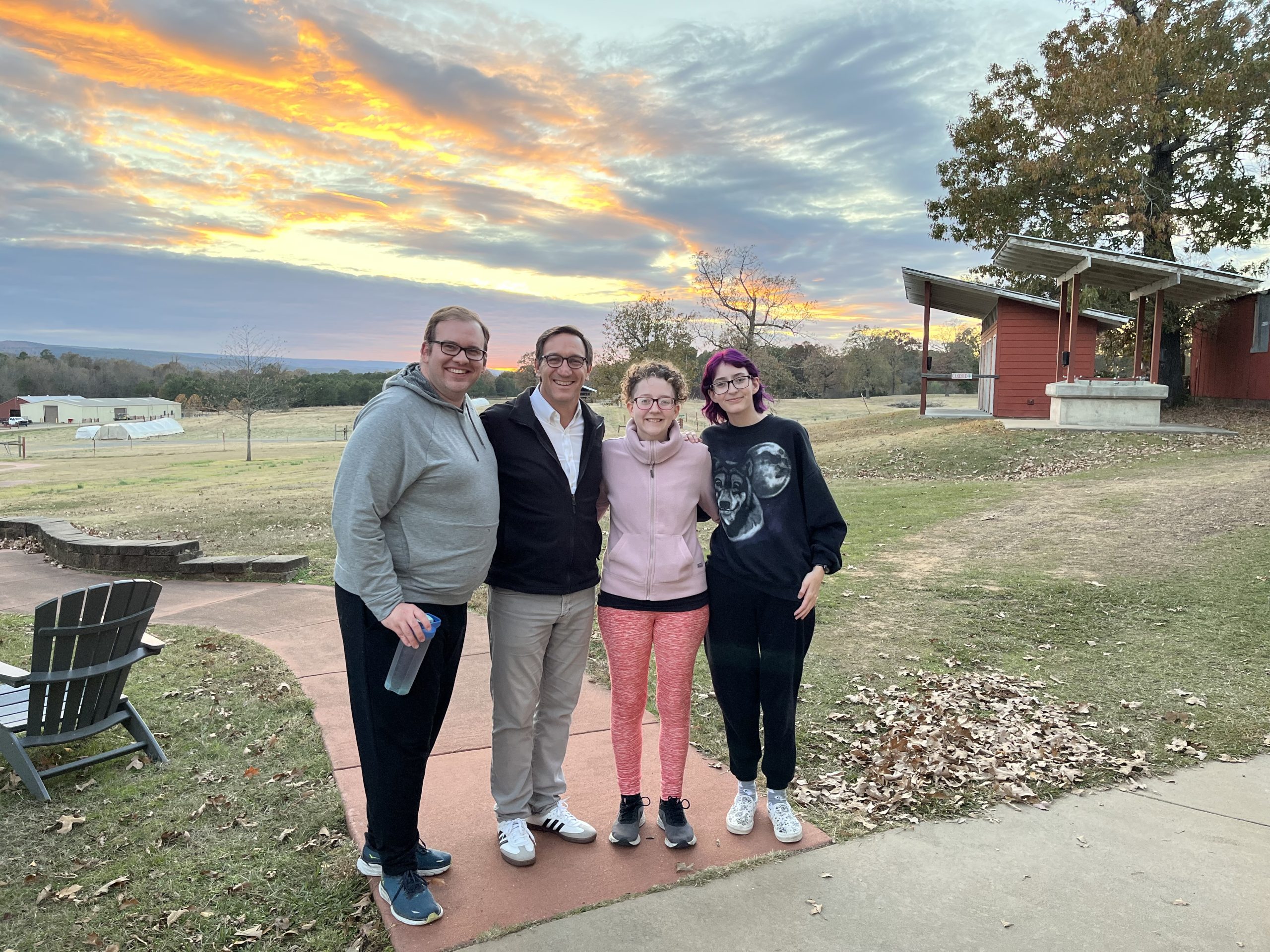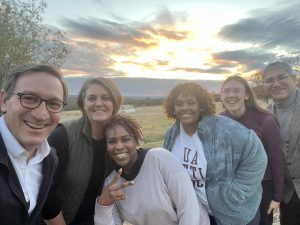UA Little Rock Group Learn Power of Heifer International Training

Ever since Michelle Malone learned about Heifer International after moving to Arkansas in 2007, she has been interested in their philosophy of how “teaching a person to fish” will “feed them for a lifetime” and the work they were doing to assist those who were challenged.
“I loved the idea of having a way to empower those who may be struggling to survive,” said Malone, a 2022 graduate of UA Little Rock who now works as an Ottenheimer Library specialist for digital learning at the university. “When I learned about the opportunity to attend the Heifer International training, naturally, I wanted to be involved.”
Malone was among a group of a dozen UA Little Rock students and alumni who took part in Heifer International’s Cornerstones training just before Thanksgiving 2022. The group traveled to the Heifer Farm in Perryville, Arkansas.
Dr. Julien Mirivel, a professor of applied communication, is lead principal investigator of an interdisciplinary research team from the university that is investigating the personal transformation effects of Heifer International’s efforts to end hunger and poverty and build sustainable communities across the globe. Heifer International has a vision to explore the nature of personal transformation around the globe and measure its impact at the individual level. UA Little Rock is conducting a study on how Heifer’s approach has impacted communities by partnering with people living in rural areas to help them achieve sustainable living income.
“Heifer International uses an approach called values-based community holistic development,” Mirivel said. “They try to help transform people’s lives from hopelessness to hopefulness. People who decide to participate with Heifer International form a group of about 20-25 people representing their respective family. They go through multiple trainings, and one of the key trainings is the “Heifer 12 Cornerstones Training for Just and Sustainable Development.” It introduces Heifer’s 12 Cornerstones in a personal leadership training environment.”
During the training, participants learn about Heifer’s set of 12 core values known as the “Cornerstones for Just and Sustainable Development” that form the foundation of Heifer’s work. The 12 cornerstones include passing on the gift; accountability; sharing and caring; sustainability and self-reliance; improved animal and resource management; nutrition and income; gender and family focus; genuine need and justice; improving the environment; full participation; training, education, and communication; and spirituality.
“I asked Heifer to go through their Cornerstones training so I could better understand how we can measure and understand transformation,” Mirivel said. “As soon as I went through the training, I knew I wanted other students to experience this. Heifer International flew in one of their most experienced community development trainers, Mr. Buddi Khatri, from Nepal, where the work of Heifer has been impactful.”

The UA Little Rock group consisted of undergraduate and graduate students, students from the Clinton School of Public Service, and alumni from the Department of Applied Communication. Students had the opportunity to attend the Cornerstones session as part of a one-credit hour class. The training course was a pilot program from the Department of Applied Communication, and the students’ trip was subsidized by the dean’s office in the College of Humanities, Arts, and Social Sciences and members of the community advisory council for the department.
“The training is designed to first develop in each of us a sense of personal leadership and agency that is shaping our lives,” Mirivel said. “I want that group of students to become a group of influencers who will have a further impact.”
Mirivel will meet with the training participants during the spring semester to discuss ways that the group can share what they learned to make a positive impact in the community.
“My hope is that we will be able to integrate the Heifer 12 Cornerstones training and community development model into the campus, thereby creating a community in which people help each other, as well as the community beyond the campus,” Malone said. “This training came at a pivotal time of my life as I was seeking the next steps of my life and career. It provided a strategic way for me to assess my values, needs and wants, as well as open up ideas of how I can empower those around me and live mindfully. I am extremely grateful to have had this experience and opportunity to learn about myself and others, and to gain new understandings of how I might be able to uplift and support those around me.”
